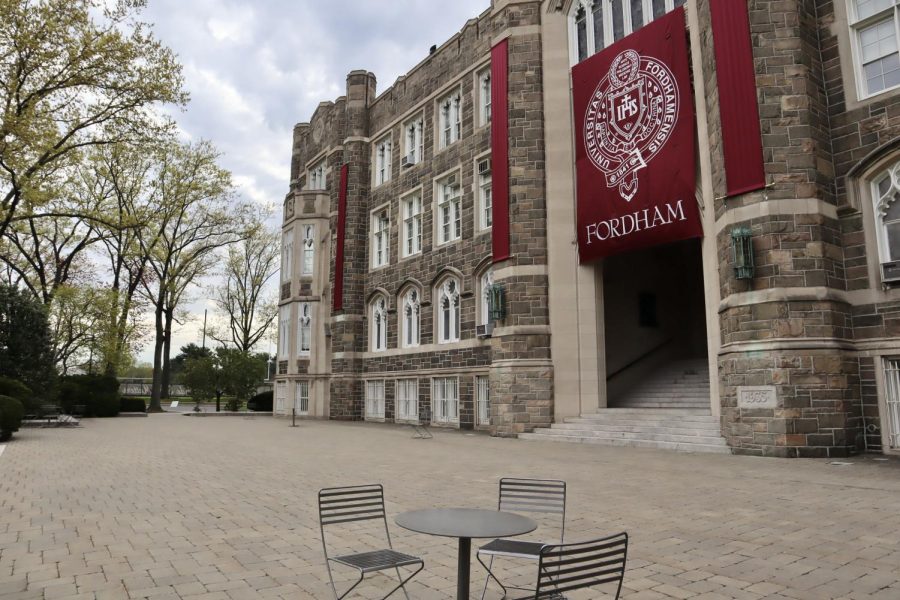Fordham Vaccination Policy Must Push to Encourage Hesitant Students
On April 16, Rev. Joseph M. McShane, S.J., president of the university, released a statement regarding the university’s policy on COVID-19 vaccination. The policy is clear: It is required that all students be fully vaccinated by the start of the fall semester. McShane begins his statement by reflecting on the pain, distress and loss the world has experienced this past year. Yet, he emphasizes that there is a path to the end of this exhausting and heart-breaking pandemic. “That path is vaccination,” McShane said.
He is right. If we want our campus life to return to what it once was — to experience Fordham the way it ought to be — vaccinating the whole student body is necessary. While many students rightly see their Moderna and Pfizer jabs as the ticket back to normalcy, we have to consider that some may not. When something is made mandatory, there undoubtedly will be those who resist. While some do so merely to push back, others express genuine worries.
These vaccine-hesitant individuals often have understandable concerns, raising questions about the speed at which the vaccine was developed, the new mRNA technology and possible long-term effects of receiving the shot. So, while it is absolutely necessary that Fordham mandate vaccination for all students, it is also imperative that the university addresses these concerns, assuring the student body through educational resources that the vaccines are completely safe and highly effective, having passed all the necessary steps of development.
We will not see the pandemic restrictions go away unless we see a massive decrease in the community spread of COVID-19. The best way to achieve that is by attaining herd immunity through vaccination. Thankfully, as a triumph of modern science, the vaccines developed are highly effective, with the Moderna and Pfizer mRNA vaccines proving to be 90% effective in preventing COVID-19 in real-world conditions. Johnson and Johnson’s one-shot vaccine is also very effective, with a 72% overall efficacy rate in the U.S.
The chance of contracting COVID-19 and being infected drastically decreases when fully vaccinated, and therefore, you are far less likely to spread it to other people. When enough people are protected, the virus loses its momentum, and its ability to infect the population decreases.
Thus, Fordham’s vaccination policy will not only keep students safe by ensuring we are protected, but also will also contribute to the safety of the public. Vaccines only work if enough people get them, so it is our duty as citizens to fulfill our role in public health.
It is crucial that the university helps vaccine-hesitant students understand this. The administration should first identify students who are opposed or hesitant to receiving the vaccine and attempt to form a bridge with them, listening to their concerns and doing whatever it takes to assist them in realizing that, while their worries are understandable, there truly is nothing to worry about. The vaccines are only available to the public because they are safe. If they were not, then the FDA would not have authorized their emergency use. Even though it will be a gradual process, the vaccine and the public’s willingness to receive it are the keys to reaching pre-pandemic life.
In his statement, McShane also noted that religious and medical exemptions would be considered. However, Fordham should not let students exploit this accommodation by refusing to get the vaccine based on personal beliefs. Surely, medical exemptions to the vaccine must be offered. If a student has a history of allergic reaction to vaccinations or if the student’s immune system is somehow compromised, the university should certainly grant them an exemption but not without a thorough process of validating it.
Fordham must be vigilant in providing exemptions. While honoring the freedom of religion, the university must ensure that any requests on this basis are valid. Personal belief does not equal religious belief, so students who may try to exploit this accommodation should not be offered the exemption. This process may be difficult, but vaccination is of the utmost importance. It is also worth noting that New York Gov. Andrew Cuomo ended religious exemptions for required vaccines two years ago for New York public schools in response to measles outbreaks.
We should also remember that Fordham already requires the MMR vaccine. The vaccine mandate is not a new idea. This shot protects us against measles, mumps and rubella. The reason these diseases are extremely rare is because of widespread immunization and the existence of an effective vaccine. We must combat vaccine hesitancy with this fact. The vaccines are how we beat COVID-19 and how we begin to say goodbye to the pandemic that has brought so much despair to the world.
It is not enough to mandate the vaccine policy. The university must encourage the vaccine-hesitant students to receive the vaccine rather than just telling them to. While the mandate is logistically necessary, the incentive should be emphasized. We should be telling the uncertain portion of our student body, “with this vaccine, you will soon be able to do the things you love again. You will be able to fully immerse yourself in your college experience and in the city as a whole.”
There is a reason so many people we know are posting their vaccination cards on their social media. It is their way of saying, “I’m doing my part.” Fordham’s vaccination policy will not only keep our community safe, but is our university saying, “We are doing our part.” Widespread vaccination — across the globe — is how we will finally emerge from this dark time. Let’s do our part, Fordham.
Michael Pappano, FCRH ’22, is a digital tech and emerging media major from Buffalo, N.Y.










































































































































































































